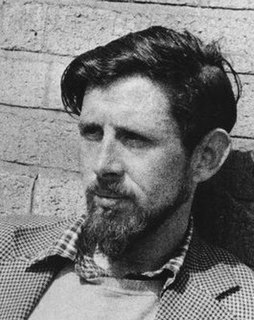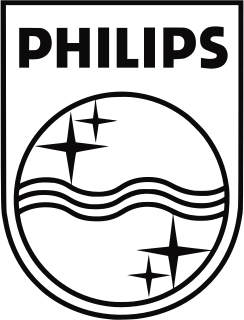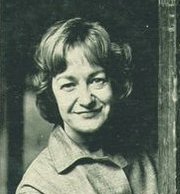
Decca Records is a British record label established in 1929 by Edward Lewis. Its U.S. label was established in late 1934 by Lewis, Jack Kapp, American Decca's first president, and Milton Rackmil, who later became American Decca's president. In 1937, anticipating Nazi aggression leading to World War II, Lewis sold American Decca and the link between the U.K. and U.S. Decca labels was broken for several decades. The British label was renowned for its development of recording methods, while the American company developed the concept of cast albums in the musical genre.

James Henry Miller, better known by his stage name Ewan MacColl, was a folk singer-songwriter, folk song collector, labour activist and actor. Born in England to Scottish parents, he is known as one of the instigators of the 1960s folk revival as well as for writing such songs as "The First Time Ever I Saw Your Face" and "Dirty Old Town".
The Aeolian Quartet was a highly reputed string quartet based in London, England, with a long international touring history and presence, an important recording and broadcasting profile. It was the successor of the pre-War Stratton Quartet. The quartet adopted its new name in 1944 and disbanded in 1981.
ASV Records was a London-based record label set up by Harley Usill, founder of Argo Records, Decca producer and former Argo general manager, Kevin Daly, and producer Jack Boyce, after Argo's parent company Decca was bought by PolyGram in 1980. ASV stood for "Academy Sound and Vision". The label was bought by the Sanctuary Records Group in May 1999.

Mercury Records is an American record label owned by Universal Music Group. It had significant success as an independent operation in the 1940s and 1950s. Smash Records and Fontana Records were sub labels of Mercury. In the United States, it operated through Republic Records; in the United Kingdom, it was distributed by EMI Records.

London Recordings is a British record label that marketed records in the United States, Canada, and Latin America for Decca Records from 1947 to 1980 before becoming semi-independent. The London name — as London American Recordings, often shortened to London American — was also used by British Decca in the UK market, for releases taken from American labels, which British Decca licensed.
Shirley Elizabeth Collins MBE is an English folk singer who was a significant contributor to the English Folk Revival of the 1960s and 1970s. She often performed and recorded with her sister Dolly, whose accompaniment on piano and portative organ created unique settings for Shirley's plain, austere singing style.
Walt Disney Records is an American record label of the Disney Music Group. The label releases soundtrack albums from Disney's motion picture studios, television series, theme parks, and traditional studio albums produced by its roster of pop, teen pop, and country artists.
Topic Records is a British folk music label, which played a major role in the second British folk revival. It began as an offshoot of the Workers' Music Association in 1939, making it the oldest independent record label in the world.

Philips Records is a record label founded by the Dutch electronics company Philips. In 1946, Philips acquired the company which pressed records for British Decca's Dutch outlet in Amsterdam.

Isla Cameron was a Scottish-born, English-raised actress and singer. AllMusic noted that "Cameron was one of a quartet of key figures in England's postwar folk song revival - and to give a measure of her importance, the other three were Ewan MacColl, A. L. Lloyd, and Alan Lomax". She was a respected and popular folk music performer through the 1950s and early 60s as well as appearing in several films; she focused almost exclusively on her acting career from 1966 onwards. Cameron provided the singing voice for actress Julie Christie's part in the hit 1967 film version of Thomas Hardy's Far From the Madding Crowd, but changed career direction and became a film researcher in the early 1970s before her early death in a domestic accident in 1980. One of the traditional songs in her repertoire, "Blackwaterside", recorded by Cameron in 1962, was subsequently popularised by notable "next generation" U.K. folk music performers Anne Briggs, Bert Jansch and Sandy Denny.

Lyrita is a British classical music record label, specializing in the works of British composers.
The Critics Group, also known as The London Critics Group, was a group of people who met to explore 'how best to apply the techniques of folk-music and drama to the folk revival' under the direction of Ewan MacColl and Peggy Seeger, with some participation from Bert Lloyd and Charles Parker. Running for eight years from the mid-1960s to the early 1970s, it was not a conventional musical group or band as it had no permanent line-up. Members would perform with each other on an ad-hoc basis as situations demanded.

Peter Handford was an English location sound recordist. He is considered a master and pioneer of this area of sound recording.
A spoken word album is a recording of spoken material, a predecessor of the contemporary audiobook genre. Rather than featuring music or songs, the content of spoken word albums include political speeches, dramatic readings of historical documents, dialogue from a film soundtrack, dramatized versions of literary classics, stories for children, comedic material, and instructional recordings. The Grammy for Best Spoken Word Album has been awarded annually since 1959.
The first authorised adaptation of J. R. R. Tolkien's 1937 novel The Hobbit was a stage production by St. Margaret's School, Edinburgh in March 1953. Subsequently, The Hobbit has been adapted for a variety of media including stage, screen, radio, board games and video games.
Folkways Records was a record label founded by Moses Asch that documented folk, world, and children's music. It was acquired by the Smithsonian Institution in 1987 and is now part of Smithsonian Folkways.
Deben Bhattacharya (1921–2001) was a Bengali radio producer, record producer, ethnomusicologist, anthropologist, documentary filmmaker, photographer, translator, poet, writer, broadcaster, lecturer, and folk music consultant. He produced over 100 records, 23 films and published more than a dozen books in his lifetime and much of his work was carried out under the auspices of UNESCO.
Harley John Vaughan Usill was a British record company executive. He was joint founder and managing director of British record label Argo Records.
Saga Records was a British independent record label first established in 1958. It pioneered budget-priced light classical music and jazz LPs.








